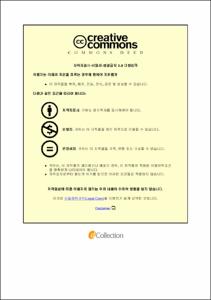중국 위험화물 운전자의 피로도 인식과 사고 연관성에 관한 연구
- Alternative Title
- A Study On the Awareness of Fatigue and it’s Relationship with Traffic Accidents
- Abstract
- Dangerous cargo traffic accidents are one of the main causes of human factors, especially driver fatigue. Since the importance of fatigue is so serious, government, freight forwarders and drivers will bring utter disaster if they fail to give attention to this area.
The purpose of this study is to analyze the relation between the fatigue of the dangerous cargo driver and the transportation accident. The questionnaire prepared for this study was reconstructed according to the purpose of this study based on previous research on the driver's fatigue, and most of the questionnaire items were focused on the driver's fatigue.(Ann Williamson& Samantha Sadural,2001).
In this paper, 200 dangerous cargo truck drivers responded to the questionnaire survey, 44 copies were removed for inconsistent answers, and the final 156 questionnaires were used for t-test, binomial test, and regression analysis after reliability and factor analysis.
Factors that affecting fatigue during driving are analyzed as long-term transportation, lack of rest, lack of sleep, and driving at dawn.
Even in the case of fatigue countermeasures, they prefer practical measures such as minimizing nighttime driving, shortening working hours, and provision of adequate breaks.
Regression analysis of the effects of fatigue on accidents showed that the daily average sleeping time and career had negative impacts while age had significant positive effects.
- Issued Date
- 2018
- Awarded Date
- 2018. 8
- Type
- Dissertation
- Publisher
- 부경대학교
- Alternative Author(s)
- 왕몽교
- Affiliation
- 부경대학교 대학원
- Department
- 대학원 국제통상물류학과
- Advisor
- 조찬혁
- Table Of Contents
- 제Ⅰ장 서론 1
제1절 연구배경 및 목적 1
제2절 연구방법 및 범위 3
1. 연구의 방법 3
2. 연구의 범위 4
제Ⅱ장 이론적 배경 5
제1절 위험물의 정의와 분류 5
1. 한국 위험물의 정의와 분류 5
2. 중국 위험물 정의와 분류 8
3. 위험물 운송수단별 국제기구 및 규정 9
4. 위험화물 사고 발생의 지역과 시간 분포 10
제2절 피로의 정의와 요소 분류 12
1. 피로의 정의 12
2. 운전 피로에 영향을 미치는 요소 13
제3절 위험물과 피로에 관한 기존연구 16
1. 위험물에 관한 기존연구 16
2. 운전자의 피로에 관한 기존연구 20
제Ⅲ장 연구 방법 23
제1절 표본의 선정과 자료의 수집 23
제2절 설문지의 구성 및 내용 23
제3절 자료의 분석방법 24
제Ⅳ장 분석 결과 25
제1절 설문지 응답자의 일반현황과 직업 관련 특성 25
1. 설문지 응답자의 일반현황 25
2. 위험물 운전자 직업 관련 특성 26
제2절 위험물 운전자의 피로도 30
1. 위험물 운전자 생활상태 30
2. 운전시 피로감을 느낄 시간대 34
3. 지난 1년간 사고 현황 36
4. 피로도에 대한 대책 39
제3절 운전중 피로에 영향을 미치는 요인 40
1.운전중 피로에 영향을 미치는 요인 분포도 40
2.운전중 피로도에 영향을 미치는 요인의 이항분포검정 41
제4절 운전중 피로감 극복을 위해 사용되는 전략 분석 44
1. 신뢰성과 타당성 44
2. 피로감을 다루기 위해 열거 된 전략 45
제5절 피로도가 사고에 미치는 영향 49
1. 측정 변수 간 상관관계 49
2. 다중회귀분석 결과 51
제6절 운전자 피로의 해결방안 54
1. 피로관리에 대한 신뢰성 및 타당성 요인 분석 결과 54
2. 피로관리에 대한 대응표본 T검증 결과 55
제Ⅴ장 결론 56
제1절 연구결과 요약 및 시사점 56
1. 연구결과 요약 56
2. 시사점 57
제2절 연구의 한계 및 향후 연구 방향 59
참고문헌 60
설문지 64
- Degree
- Master
- Appears in Collections:
- 대학원 > 국제통상물류학과-FTA비즈니스전공
- Files in This Item:
-
-
Download
 중국 위험화물 운전자의 피로도 인식과 사고 연관성에 관한 연구.pdf
기타 데이터 / 1.27 MB / Adobe PDF
중국 위험화물 운전자의 피로도 인식과 사고 연관성에 관한 연구.pdf
기타 데이터 / 1.27 MB / Adobe PDF
-
Items in Repository are protected by copyright, with all rights reserved, unless otherwise indicated.